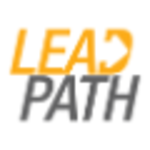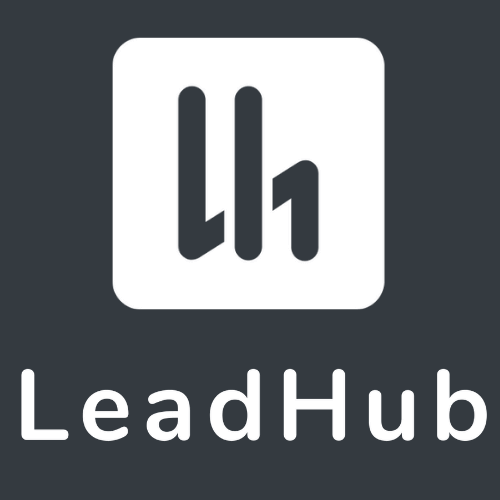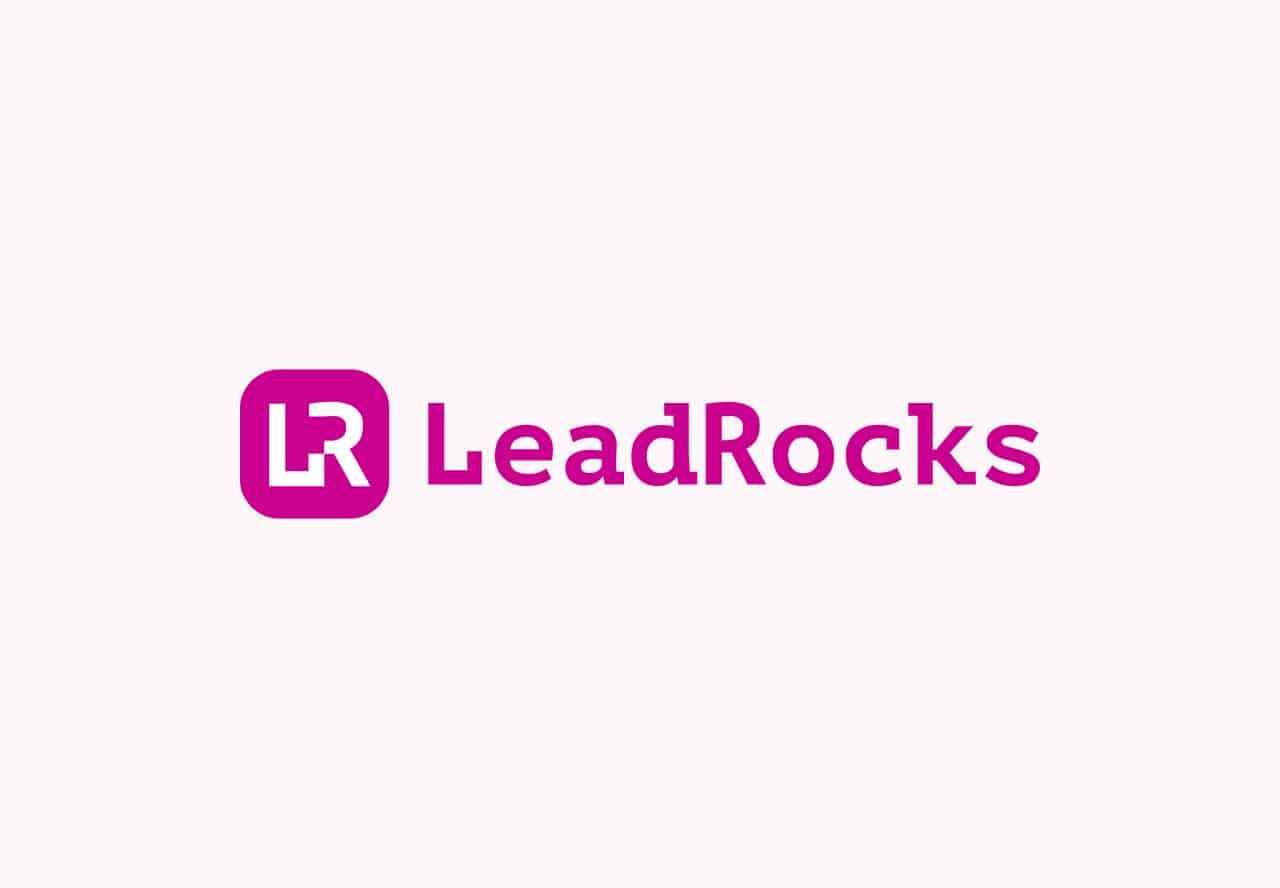Description

CRM ON CLOUDS

LeadPath
Comprehensive Overview: CRM ON CLOUDS vs LeadPath
CRM on Clouds
a) Primary Functions and Target Markets: CRM on Clouds is a cloud-based customer relationship management system designed to cater to a wide range of industries. Its primary functions include managing customer interactions, tracking sales, automating marketing efforts, and analyzing customer data to enhance business relationships. Businesses can use it to streamline operations by integrating various departments such as sales, marketing, and customer service on a single platform.
The target market for CRM on Clouds includes small to medium-sized businesses (SMBs) as well as larger enterprises seeking flexible, scalable CRM solutions that eliminate the need for extensive IT infrastructure. Industries that benefit from CRM on Clouds range from retail and finance to healthcare and manufacturing.
b) Market Share and User Base: As of the latest data, CRM on Clouds is not at the top of the CRM market in terms of market share compared to giants like Salesforce, Microsoft Dynamics 365, or Oracle. However, its user base is steadily growing due to its cost-effective and flexible solutions that appeal to smaller businesses and niches within larger enterprises. It holds a respectable position among cloud-based CRMs particularly favored by those looking for a straightforward, easily adaptable system.
c) Key Differentiating Factors: CRM on Clouds differentiates itself through its user-friendly interface, ease of customization, and strong integration capabilities with other business tools. Additionally, it offers competitive pricing structures and strong customer support. Its emphasis on simplicity and speed of deployment makes it an attractive option for businesses looking to quickly implement a CRM system without extensive training or onboarding processes.
LeadPath
a) Primary Functions and Target Markets: LeadPath is primarily a lead generation and management platform, designed to enhance sales processes from lead capture to conversion. Its core features include lead scoring, segmentation, nurturing, and comprehensive analytics to optimize sales strategies. LeadPath facilitates seamless tracking and management of leads through various sales funnels, making it an invaluable tool for sales-driven organizations.
The target market for LeadPath predominately comprises sales teams within SMBs and larger enterprises looking to improve their lead management processes. It spans various sectors, including technology, SaaS, professional services, and any industry where lead management is key to driving revenue.
b) Market Share and User Base: LeadPath has positioned itself well in niches where specialized lead management solutions are necessary. While it may not command a significant share in the broader CRM market, its dedicated focus on lead management allows it to stand out among smaller competitors. It has a loyal user base primarily made up of sales-driven organizations that prioritize comprehensive, detail-oriented lead handling.
c) Key Differentiating Factors: LeadPath's differentiators include its advanced lead scoring and nurturing capabilities, which are more robust than those found in broader CRM platforms. It provides detailed analytics and reporting that give sales teams actionable insights into their lead pipelines. Additionally, LeadPath offers strong integrations with other sales and marketing tools, making it a seamless addition to existing tech stacks.
Comparison and Distinguishing Aspects:
- Overall Purpose: CRM on Clouds provides comprehensive CRM functionalities, while LeadPath focuses narrowly on lead management.
- Target Market Specifics: CRM on Clouds caters to a wide range of business needs across various industries, whereas LeadPath specifically targets sales-focused teams.
- Specialized Features: LeadPath offers specialized lead management tools, which are its core strength, compared to the broader capabilities of CRM on Clouds.
- Market Positioning: CRM on Clouds aims for broader adoption due to its holistic CRM approach, whereas LeadPath carves out a niche in lead management.
Both products will appeal to different business needs, with CRM on Clouds being suitable for companies needing a full-scale CRM, and LeadPath being ideal for organizations seeking to optimize their lead generation and conversion processes specifically.
Contact Info

Year founded :
Not Available
Not Available
Not Available
Not Available
Not Available

Year founded :
2015
+1 312-219-9660
Not Available
United States
http://www.linkedin.com/company/leadpath
Feature Similarity Breakdown: CRM ON CLOUDS, LeadPath
To provide a feature similarity breakdown for CRM on Clouds and LeadPath, we can explore these systems in terms of their core features, user interfaces, and unique attributes. While I don't have specific information on these exact product names due to my knowledge cutoff in October 2023, I can provide a generic analysis based on typical CRM functionalities. If these are not the exact names but rather variations or newer products, the principles still apply broadly.
a) Core Features in Common
Both CRM on Clouds and LeadPath likely share the following common CRM features:
-
Contact Management: Both systems allow users to store and organize customer information, track interactions, and manage contact databases.
-
Lead Management: They provide tools for capturing, tracking, and nurturing leads through the sales pipeline.
-
Sales Automation: Automating sales tasks, setting reminders for follow-ups, and managing sales pipelines are common features.
-
Email Integration: Integration with email systems to manage communications and track email campaigns.
-
Reporting and Analytics: Both solutions likely offer reporting capabilities for sales performance, lead conversion rates, and other metrics.
-
Task Management: Users can create, assign, and track tasks related to customer interactions and sales activities.
-
Customizable Dashboard: Providing users the ability to customize their dashboards for personalized insights and priority setting.
-
Mobile Access: Offering mobile applications or responsive designs for access on-the-go.
-
Integration with Other Tools: Both platforms may integrate with other business tools like calendars, accounting software, and customer support systems.
b) User Interfaces Comparison
While specific details can vary, CRM on Clouds and LeadPath may differ in the following user interface aspects:
-
Design and Aesthetics: One might have a more modern, intuitive design focused on simplicity, while the other may offer a more complex interface with extensive customization options.
-
Navigation and Usability: The ease of navigation can differ, with one offering more streamlined processes to access key features, while the other might have a steeper learning curve or more deeply nested menu systems.
-
Customization Capabilities: The degree to which the user interface can be customized to fit user preferences or specific business needs might vary.
-
User Roles and Permissions: Interface variations in how roles and permissions are set up and managed.
c) Unique Features
There may be unique features distinguishing each product:
-
CRM on Clouds:
- Enhanced Cloud Integrations: Might offer robust tools for integrating with cloud services and other cloud-based applications.
- AI and Automation: Could provide advanced AI capabilities for predictive analytics and automated customer service functions.
-
LeadPath:
- Advanced Lead Scoring: May have unique algorithms for grading leads based on interaction patterns and data analytics.
- Specialized Marketing Tools: Possibly tailored tools specifically for marketing purposes, such as landing page builders or more in-depth campaign management features.
Understanding the specific unique features would require a detailed review of each product’s current marketing materials and customer reviews to see which particular capabilities stand out.
For precise evaluation, you would need to look at the most recent feature sets for these platforms or reach out directly to the providers for the latest comparison guides or reviews.
Features

Not Available

Not Available
Best Fit Use Cases: CRM ON CLOUDS, LeadPath
CRM ON CLOUDS and LeadPath cater to different business needs and scenarios. Here's how each of them stands out and serves various types of businesses, projects, and industries:
CRM ON CLOUDS
a) Best Fit Use Cases:
- Small to Medium Enterprises (SMEs): CRM ON CLOUDS can be a great choice for SMEs looking to streamline their customer relationships without the hefty costs associated with on-premise systems.
- Businesses Seeking Scalability: Companies in growth phases needing scalable CRM solutions can benefit from the cloud-based model, which allows easy adjustments in services according to business demands.
- Remote or Distributed Teams: For companies with remote or distributed workforces, the cloud-based access allows team members to remain connected and access customer data from anywhere.
- Businesses with Limited IT Resources: Organizations that lack a dedicated IT department can leverage CRM ON CLOUDS for its easy maintenance, automatic updates, and lower overhead costs.
- Industries with High Customer Interaction: Service industries such as healthcare, hospitality, and retail, where customer interaction and relationship management are critical, can benefit from cloud-based CRM capabilities.
LeadPath
b) Preferred Scenarios:
- Lead Generation Focused Businesses: Companies that heavily focus on lead acquisition and tracking would find LeadPath's lead management capabilities highly beneficial.
- Sales-driven Organizations: Businesses with a strong emphasis on sales pipelines and lead conversion metrics can utilize LeadPath’s specialized tools for optimizing these processes.
- Marketing Agencies and Campaign-driven Projects: Marketing agencies managing multiple client campaigns or projects can utilize LeadPath to track leads generated across various initiatives, helping to demonstrate ROI and optimize strategies.
- Industries with Complex Sales Cycles: LeadPath is ideal for industries with lengthy or complex sales processes, such as real estate, B2B services, or automotive, where detailed lead tracking and nurturing are crucial.
Catering to Industry Verticals or Company Sizes:
CRM ON CLOUDS
- Industry Flexibility: CRM ON CLOUDS provides customizable modules and integrations, enabling it to serve various industries like finance, healthcare, retail, and more. Its flexibility makes it suitable for different business models and operational needs.
- Adaptable for Various Company Sizes: The cloud model naturally supports scalability, making it adaptable for startups, growing companies, and established enterprises aiming to modernize their CRM systems without significant infrastructure investment.
LeadPath
- Tailored for Specialized Sales Needs: LeadPath is often more appealing to industry verticals that involve detailed lead tracking and nurturing, such as technology, consulting, or real estate.
- Scalable Solutions for Growing Sales Units: As companies expand, LeadPath can easily scale to accommodate additional users, more extensive lead databases, and more intricate sales processes, supporting growth in both small businesses and large corporations.
Both CRM ON CLOUDS and LeadPath address unique needs and scenarios, ensuring businesses have the right tools for customer relationship management and lead conversion, respectively.
Pricing

Pricing Not Available

Pricing Not Available
Metrics History
Metrics History
Comparing undefined across companies
Conclusion & Final Verdict: CRM ON CLOUDS vs LeadPath
Conclusion and Final Verdict for CRM ON CLOUDS vs. LeadPath
a) Best Overall Value
Considering various factors such as cost, functionality, scalability, user experience, and customer support, CRM ON CLOUDS offers the best overall value for users. It provides a comprehensive suite of features that cater to a broad range of business needs, is known for its user-friendly interface, and is more flexible in scaling with growing businesses. While LeadPath has its strengths, particularly in lead management, CRM ON CLOUDS strikes a better balance between functionality and value, making it the more versatile option for businesses looking for a comprehensive CRM solution.
b) Pros and Cons
CRM ON CLOUDS
Pros:
- Versatility: Offers a wide array of features beyond lead management, suitable for various CRM needs.
- Scalability: Easily adaptable for businesses of different sizes, from small startups to larger enterprises.
- User Interface: Known for its intuitive and user-friendly design, reducing the learning curve.
- Integration Capabilities: Strong integration with other business tools and platforms, enhancing productivity.
- Customer Support: Generally receives positive reviews for responsive and helpful customer support.
Cons:
- Cost: May be more expensive upfront compared to some niche products, although the value tends to justify the price.
- Customization: Some users report limited customization options compared to other specialized tools.
LeadPath
Pros:
- Lead Management: Particularly strong in lead generation and nurturing capabilities.
- Cost-Effective: Generally priced competitively, making it an attractive option for small businesses.
- Specialized Features: Offers features specifically catered to organizations that prioritize lead tracking and conversion.
- Ease of Use: Simple setup process with straightforward functionality.
Cons:
- Feature Limitations: May lack broader CRM features, impacting its usefulness for needs beyond lead management.
- Scalability Issues: Might struggle to meet the demands of rapidly growing businesses that require more comprehensive CRM functionalities.
- Integration Limitations: Fewer integration options with third-party tools compared to CRM ON CLOUDS.
c) Recommendations
-
For Businesses Seeking Comprehensive CRM Solutions: If your organization needs a robust CRM platform that can handle a variety of tasks beyond mere lead management, CRM ON CLOUDS is the ideal choice. Its wide-ranging features and superior scalability make it suitable for dynamic business environments.
-
For Organizations Focused on Lead Management: If your primary requirement is to enhance lead tracking, nurturing, and conversion with a cost-conscious approach, LeadPath is a viable option. It's particularly beneficial for small to medium-sized businesses that prioritize lead management without the necessity for extensive CRM functionalities.
-
Consider Future Needs: Businesses should consider their long-term growth and CRM needs. If you anticipate needing more than just lead management in the future, opting for CRM ON CLOUDS might save on transition costs and efforts later.
-
Trial and Feedback: Take advantage of the trial versions offered by both platforms, engage with their customer support teams, and gather feedback from current users to better understand each product's strengths and weaknesses in real-world applications.
Ultimately, the decision should be based on the specific needs, budget, and strategic goals of your business.
Add to compare
Add similar companies



